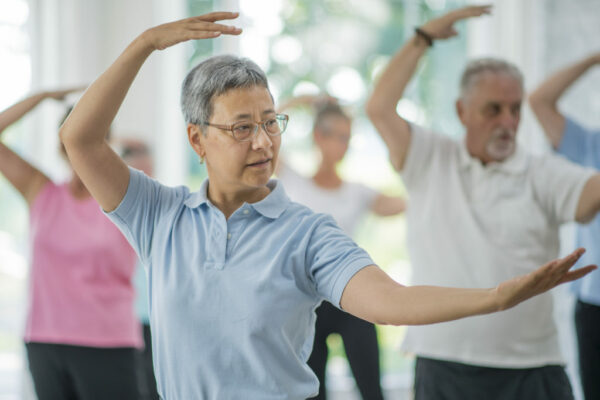Tai chi is a gentle exercise based on slow, steady movements paired with breathing and mindfulness suitable for people of any age. It helps improve balance, leg strength, cardiovascular endurance, flexibility, immune system, sleep, happiness, sense of self-worth and the ability to concentrate and multitask during cognitive tests.
Tai chi is characterised by its slow, graceful, continuous movements that are gentle on the joints and muscles. Done correctly, you will find that the tai chi poses flow smoothly from one into another. Many movements are completed with bent knees in a squat-like position.
To get the most benefits from tai chi you need to practice for at least 15 minutes a day every day! It is better to practice every day than to have longer tai chi workouts 2 or 3 times a week.
Recent research appears to show that both yoga and tai chi can improve symptoms of cognitive impairment the precursor to Alzheimer’s. Dementia patients on a movement course combining yoga, Tai chi and dance showed improvements in memory recall.
It is ideal for inactive older people wanting to raise their activity levels gently and gradually.
Many of the tai chi movements can be adapted to people with a disability, including wheelchair users.
It is always best to learn Tai chi in a class with an instructor to make sure you are doing it correctly. Try a taster session or watch a class to see before signing up for a course. You can do it at home with a DVD once you know the poses.
You can search online for tai chi classes in your area or find one using the Tai Chi Union for Great Britain website.
Sources-
NHS site
The Age well project- Annabelle Streets and Susan Saunders

